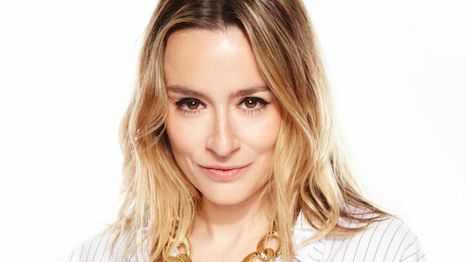By Ana Andjelic
Rihanna is having an extended moment.
At the recent New York Fashion Week, her Savage x Fenty lingerie show featured models of diverse shapes and colors, musical performances by Halsey, DJ Khaled and others, and Rihanna herself atop an elevated cube.
Savage x Fenty recently raised an additional $50 million in funding, and joins a massively successful Fenty Beauty, which, according to Forbes, in 15 months of operation accumulated $570 million in revenue.
Strong foundation
It is easy to credit social media for the swift and convincing rise of the Fenty empire. It mistakenly makes us believe that, thanks to social media, any influencer or celebrity can build a culturally relevant and successful brand.
While it is true that social media makes it easier than ever to attract an audience and build wide reach, the barriers of entry are also dangerously low, with the outcome of a number of very short-lived celeb endeavors.
A single-minded focus on social media as the growth driver also omits a much more complex web of factors that, in recent years, gave rise and prominence to Fenty brands.
Rihanna, like Kylie Jenner, enjoyed a prolonged and global mass media exposure before launching her brands.
There is nothing bigger than mass media, and mass media provided a big shortcut, especially to Kylie Jenner, a reality television star, when building her brand’s social media reach and audience.
Fenty brands significantly benefit from a strong female entrepreneurship angle and narrative.
Rihanna is a bold, outspoken and independently minded female founder, and we wholeheartedly root for her to succeed.
More importantly, she puts forward a version of the inclusive and democratic beauty world, made for those excluded from the corporate beauty brands – successfully extending the appeal of her brand beyond herself.
In contrast, Kylie Cosmetics tightly revolves around Kylie, making it more vulnerable to volatility of people’s pop-culture tastes and the fickle nature of modern celebrity.
Fenty Beauty’s tagline, “Beauty for All,” is a strong social statement underpinned by product innovation.
Fenty Beauty delivers more than 50 shades of foundation – something, until then, unheard of in the beauty industry.
Fenty Beauty’s advertising is regularly diverse, just like her fashion shows, and features models of different colors, genders and sexual orientations.
All of this taps right into the cultural mood of inclusivity, successfully institutionalizing it.
Supreme effort
If LVMH’s recent strategy of collaborations is any indicator, luxury fashion and beauty brands are keen to reach the Instagram generation by partnering up with brands popular with this demographic.
Previously on cease-and-desist order, Supreme released a range of objects, from skateboards to punching bags to luggage, with Louis Vuitton.
Bringing Rihanna into LVMH fold is a proven success strategy, fresh of the heels of Fenty Beauty’s fast growth, distributed via LVMH-owned Sephora.
All of this indicates that, in the age of social media, for enduring appeal you need, well, something more than social media.
Rihanna is smart to have a diverse product portfolio, to stand for and represent something beyond a mere celebrity, which can ultimately undo a brand such as Kylie Cosmetics, whose growth has already slowed down, and to constantly put forward a fresh perspective both in terms of advertising and business models.
Social media indeed allows celebrities to speak directly to consumers, let them into their world, build a personal relationship at scale, and make them believe that we are all BFFs.
This is especially true for beauty, which is one of those passion industries, such as fitness, that everyone has an opinion and advice on, making barriers to engagement low and a sense of community high.
This audience proximity is best used as a savvy business tool, though, allowing a celebrity-backed brand to be nimble and responsive.
Otherwise, there are always dangers of “cancel” culture: because celebrity brands are so closely tied to their founders, every misstep counts.
In beauty, this can be deadly.
BY MAKING Fenty Beauty about “beauty for all,” Rihanna successfully insulates herself from being cancelled – or, at least, makes cancelling really difficult. Kylie Jenner? Not so much.
 Ana Andjelic
Ana Andjelic
Ana Andjelic is a New York-based brand growth leader, doctor of sociology and startup advisor. She was named to Forbes CMO Next 2018 list. Reach her at [email protected].
{"ct":"pDDP00314BGhE8D2QOUXl1KzOPj8UIhAwFWVWRtLwOGpyRHxB7\/JrlrKRN0FaS7zUduDOJTNNleR1fxR2fVb8wHAB1\/2BGWGvlD2ngVIgmdeGWXqfDMO7gir7L2JA4ojQKv1HnqatyVNGQyp0CUPdiee\/\/3gdGm96FjP4xl\/i3+37G5rcfFL9yW1VHqsQTWx\/k\/azOw099appOQQBrqYPlaX6uCdJOewsIJrmjsljwgMZkTm\/Rn5e0fVrQ6RO7EMRHLztHloGHazXc8wYfxADHSI\/sy3BVDp8RBaSeBMjl6Tl\/pYCujhr+XkxIGSt19TpaNBDz6LQFEJI6nf3OxZISn9Rmk0eC3rXO+La8fZ5bmXG\/6h2kH27bvExurL3ny1udtOJY83hjx7lPxJa5LkU\/25wC0wFdMgzFgwS1VeVeuTaICto9U2X9NHeaaulZVAi06k2DsIOQXqG7aFBPNiIcNhr0U3fEMz\/lpkEl4o3RqbR6Aiud\/lfG3tjkAiZoyogZ5R5i5v8qyjxsUlCNulP4rx4do0BM4OFXI86RUT4hUlxHf85NJ0zTg77Il3x9EfalJ\/GZHZ7QjtM3rVPlJxfX+v2B6+C7pw\/5a4VTX8wRdCDzWHHa16gyZF598wXWIKNUEuH\/pVjpmGcDIcdtNOrecsq7Mg9IjS4Dh8rIhaCpxBZnCZVL76NsW8j\/NOmp5UKxi2y\/Qtpoc\/HNgGM+J2\/BCAtx+zmTpNE8P5\/l+6LnziT34hsjLstM3zvzimvTOGVJEmuC3euOOy2F7xNpvDawUy70C7kApvTKomUsxxwVGdrXc+XOuCRvW+EQqf2XMmxBDVBda2dtU5TQS49BCx1rPNo+5c+fd11A2VOFHF\/KFUgAdXkz3qo5fypaUoiduoYG+axbACqWH9tUChlwvrZzcr7iEzHGmST8LKJagPzx5MZD7D1sqWOfHL7cOSl65OQo7WDBziQIkk7marzkPgAx84bdxdEzZcHPoO5+fq4H5wiPG7BAUKD8oyVpeBx5woxpwg1AXJ9f9Gg2\/qdITP304XdpIer0fMPjbEM1IZP1qfk9fSxNR\/uBzQFgJ0slJMC3FfFCOlGpqJscRyoxUoYJ51jkyogqcKw4RdPERmFYU9Dx69MyMsSm8RwOkNrbjF5vrJqy2IWNAzZpO9oWF9hTcapWyEm4UtGZ56KEGzsAdJFhMpa7vEDIU9vujgbTQI0auw8\/kjgOzqG731\/1oJ3NYhKelqm8UAVhFfZo\/Hs82HkNaV7BiksiIGyaFeSOKRnB2Q+jyCLNksPhweCVmmc5gtEHj5Eb151mDkgn8imsLKLypOu8WuzUTKar4dGPQ5Io4gG4W9oRWuUvJSxiRiZUTFL5RiEsqaoPpUR7fV0uDG2t7LJfaZ0qA4tGHei8OtUeGjFe0L14xs924boFjsF3dk3tctUwNBwyTIlubET5IH6hDXzl3s0B7E4hWBknXAfIVEZHi9DZYUJIai6cLS0QipZ\/\/6\/CPhnx8VRLFrYlD9tORM82CxwxJuWGdRIehUvWBSbryHSVjClqUTFwet29\/+NKoZS3hbLxx9c\/BwNK9DPx8ES7v\/Mbb9XQakaKqyZ2XM4pqXNdGqfbfpRvtqNNG\/+rX+ClY5n6vWCnKgqTQsbhfVutoRyX9QKK3TpADZm82GsmabDUNd2qRdcRnu00ExjC5XZdsDbD3nKvLBCrSyunlpfdZcFqZtnRLTQWCSMmQjay9VsDRaq2CPGF6Mt5GP0P8Oi9wUl0A6cocoIIK3JsGRE83CHDY2LteNDRvEl0LphXflz+iSHVa0kw\/pfw5oZnBblVoU0fkGA87s+rAUKlcmv4DdpcmjA8+kvYmjqcLIrDZ2iqLrufFrRtPMrx\/skz+groZl3x1oLjAXuC693\/j2hBTeR6ckq8WAc7c2Tp1E+MfS9FrfWx8Qan0Vw0AVQB9m5FLedLr7WKTfshjgW\/sGXbrOBqmkdW1NT9U6m267Rx8HSJnl+KzkiIZ++O8CytUY2A1BcoEsxyjvhoTjhK0dj5zu9mp9td1IteC6VX+\/BM57cxXY\/zvjDunFykcMGp5OnxZ61WfPgIDaIpVtOWRHH9KtORsLZychPhZAzQ5iis5HAwuqTbCe4eflQ++RM9t56Dd2TvPMqCIdoGqBxf\/wc3GqptFjQ5ze9odROqsAwHAQQp\/HtpTXptWpwfX6c54P3rSggP8Or6T1SuRO1NZcVeG2UQw05KGRA7JsIsJHhVI1mHpL8eJz62Ylx7HX2J1IhZeSHpIPVwVfyBM60\/+S3bBSK3WJQH2GB4v9Q8PXL5FXc1+pI5LByTfh\/QwcST8TefyxYl5tWU2xvM+99tNU1WOY0NAHTsumO5wyh+N0QD\/h25Zs+6u9vqK4nj8cHYqKbW62r\/sA1laUNNppmdmOki7moajxnKNFYfaryyPRps130sqrH76NqS05YL7C0PsyM3lpm2kBSrnXOehk4Mtqt2eBad3l9MUefBN\/EKLh26+CVfqNBATGUFi8y5bh7VjCYM8qa2LJA1UkI\/O3YtlvsxHK4d0nWwD3cGUZmp3TjOmEqMV68mwzBFU9DYzTk\/WRWM9gz2EONNFdcWN2AzqtTr6u9J9Dqr0vNYNDftCFl82isAivk7ChO4TE2D\/OjR60jLGgveYCr4nRoXdWDcrAxzypc67xj89fIxqeG8YO\/yMJZ+nfBB6BTbKt11tHKpuAalXBk3Q+Kkxix2wI0dhpiBQaTcTm5GR41aWyi0NpvnQVgkwJwI02GSyC37fjfVB4b5heaZRbczM\/CEH+wwJ530Az8mf\/OHTQIwbWnA2ErNbsStN1gUnlL+a6oVUP3uGtPxj\/D4A5lQOd1G3Hxyb+u3tzpU\/a1kINCN58yZfRrbsuB\/Pn\/xLQXcAKEUveUIy7V0Im7bjRy2Rf+DIC5FnYrpcmQlEfSTS7gIZ\/JXx863COOYWL57DwXJxEE3cy8\/Sibr+qEQrUlRAVTZUAMfetg0J1fYfjj7AExXX+gnZ71FN7ohqLjVJ\/QovEm1Ow9KY1xrLGqX4zD\/pPuPXMVOe2Y3P3ml6FfExH+9srLsAi1RYimF6Sby8TKBTU8eYzGry1XJcHXQfVw63OpVvE48pDE9QntgGXL0s49wSBusGVsICowABRv3UV62\/QIV5LNarLXvaib3Um2UojAiiciMxxsAg4SuYszIW56iaX02UZ2DtLU2o+TYIFyjGaCO6ABgJryen0U4DVvwGBiKrCrPaMoIZsHXY1w3o3wBj50KqcYKndR4bYRKcVdcHwqFXia8VrHcCJ0oYu7QjmPSsB46PXxhWkllTp+nfX5mDl2MsrOszWnaXCvcyAN5tfvpl3lhV4SzpSNdbqRlH2vLkWFoL+d+S9tOeKBKiJ2qzmkVldcMc4xwtXT+k\/kUMbFVYRKYzfOsCsMCQqh4m4r8ueg\/xTUytx\/UjMA06SYffVsSIGfHIDKdEW8\/8+WQTbMx7w\/f4vbUm8EzuifF86c9Pu5BaivoxhC5gZlVY1cgSUMlB335yCU4rZmsrMsgzp1foRhMPdMA9b7cKGbo+WiPGfhbNjBIwZZxZCbi7KNQ6Au61oPJ0WGIZABR3gmvhuUnnbKpbSC+JvI1tw6T1f95yj6mVTN7l2mdH0wLui0Uy+xIhtCMvCJs2C3VoJAw5bgM+AKMMvH9aXUkkksD0hASKzvJrDOsSEuMBrPL98X25DVAjmaVf1dJXtvknTl0YHf21njL6p0NhU9wo0hVI8\/ypZ7KHszNd+wkfut0RCrx\/OQqOEebA5VaXsmRDxRFEqtw3SsPYJtuFlehfbpZ3KkZgeKhXQHSN7s8iUsr0hplXiruOFGjrq2vPLLJvTYSdZuwBzfleL7N5KK84Ufga\/5O7H1Jn3pqj2cO04RkAyQs9D12gVwHm2Ts1zuCw7lIey7t1XIkdXASaW4+HEyQRuit+uAMmMg12zlDhdty1x9fO3EUDvD7EHvYSlN4pr6XF3KA3smaHiroaoDGspisy3HZXTQYkPTZ5XGNNvGg9v+F1BEShXVuwgdfRNaEpwzvzPrvyFyM5FQRs\/oqwLnIiaIaEPNkewTu2IkmSDCR1UgLh1rKMDDUAj5\/ZxAp\/XwGSrOofm8ejSptJCI8mUIXoNQWGsQv9X2s5yHLmKqpeQfdwrFOL+okQE41DY8ez+mu9SC\/k+owuDfgiXncDiVJ2Oy2uoVDrW2mbb5uXXbOYlkdYbhWjRN7apjU+5F90eSJ+z1pm5\/B8VZD+l0pMJNmjFmoGEEmpIPoIzhlrMgi+NMNQTE0q+p2tUYwDBjIKY8EWu9SFDM\/RazdaBNT45P7ctEU0ALHCpneLuFD8DCSFM7M8wn+fHj4CnCgsx3M0X6T5YHAaF5gjgI48DsSnI7wbtV8MxHg9XAxtGqbRl78JLxKocAzq8EO3NnwcEdHWeFsB9z65F4Tdhvc0hR75iq9ivzfZbGVvTGkn053NTmHxXkMS+FsS6qKXq+SIRjbqm0dZ27f1CzPdmMaurqUdQFA2uy1Q3c3XnZAf3Uo+XK7ereDCdrwVTnEcZaoPZMhzN3u4ZCHtyrWOhyVduzicKj1Hgq4AivVHxincfCGLVGntPHLZJapMXxQqk5NyT9uXk9PJ7Ngjb5D9EmwVBWGYpLHOLdV+IsP\/ZnHS1otLHavj1g0dgwPZoSyOCWM83qEgCXmXzpSvPdyxW+p89+Sm1XZ5WewNCx2SDfiq4QLEEtaaNevxsrjjtdaoqyWLWHzcfEkCBzZ2Q7Do3qfvdnzuJFFcjpazUhodmRcCwR+\/x72Rg5y0hMplsmkcBI7x9YqaVdEey6K7xZpS0HxrdqQKj6edWC7Y6xcw2cw72xIo\/ozXeCImJFsuN5NTrMJc2Arpdjh0EXisACmsyTtcFyZbECCdMOZnKxh8tUAHx8aVXCMZ3AxjwAvQSPvWYSi60rcZiWNKpQyyg\/sy3kXrUF5KPLynsSDP57k\/fSoQBpgiToBIZD59538+GyPe4HRFftv7bORD8F51ALKtNMTncRFOSwzZ0oJmjuf7c+yv0yCA46J9nDvJ5BNok1i2AqWJQct5x8yg2t3KePoyyIfAQ5\/fDlpeXQ5rLIYU0HIAHMOizi+au9yE7lbFGMLPIjR+cZO6vdO\/QMlpWoBYlE2Q\/kw4zY5oUONlqxRYBLixmdzkJeKb5+bDfqIigwlf\/2mTyWOVu9xJ\/EdtuTcAuggeYlmKQOYJbP3PKPH5Ma4em3muj5rk99zJdYyuYNN\/rqH9ZEu\/vjf6fJnZ4pws35mJrfMIAsfRkHLTv3FmK4DpMDtSe6swuU0snZsft2Up18tcRmsb1J0dXiroCX2d6cxkXZzakM0Ve55gx888py8EJJpw\/Y18rgpw9iBUJGrep2DIFoVN+oA1jMczAxs2tHKawsCJOtVVIe+trHA12xZ4wEaOBJDdaYxBu8Jz\/eW7l8Sn40+NhGe4pJrycvFLcjJBzpl4RQ2ZEOp5xvnFonUmxaxN1ulVMMnNRxs5wJTryrDxE3hfStdK6dtXKHzJbcnWmz1fBRviekkA\/id7680f6lgDaw7Vl4f3inyVluis5cgMArSTyvGLsS11W55ER4eNj1ONDPBOhelop7NbhXG86x+KTcqAioQbWTTpUi7snwbnlrcyu8Unaq9\/B954bFVPSkhKBMeA\/CXKJR3mWbV00JT\/ZQjtkeCxm9sGC9vJDP00P\/qVIoSh6Kiy3QCEyGQEBPT1Lo5XgkleVphvZq1argOfXgdyDlKdIm8t9KJIhEh7xYTi2VwAEdEjwBOiDpp3Wm++YEgdewao8Ym4zQVri6CiGLzLfhcSXReQWJywNqdmLUCoYg4qb7r6tgNq7twL8Ftm9W15ZwdLV2yBY+351r11YSTIL7kb2VE5igN\/VDrTPQ2FGswDKl8FgoukpxvjTioFpPDaOZF9z2QL\/mOoYz3Vd4kXIvmHmxDgwgMob9VMrmPotjJOe5icmg73CU6tv5mOslkJ3x8sObIWH6vtwm6Yv4K\/ww46ZCF3BIQ5H1c5hc7cxahbvQA6nVACEFtSEmrQ\/\/ddztSDO9BgQa07H5N0qb5EW6Ni7K8EXHqF2OyTC62Bu7g9o25MVduG6usqvq758LxMCaj9dR4jCfIj7NQ96G13qfk6PKDEvwAHQ1VoBZVNhHSvO1T6l3if44FScehNGGffEy6wCNoF0o1y1ekGzYZcorKNMP+om8E190qubF7aCr\/JYk2UiSYEmIEuvZFyY3ZHiT2FZ+9FcvdnO\/07q7rMu5Q89ra5HTNND4gzsxrBvX3C3zEnoURrBNNiUbmnzghrWMdpcJWBxywiYllWK6UbBvoS8wRL1GKl5UenHeqWlGaeDi4iw06oWq0L\/ah88DWwjoNEyPph3dmvMAxogPAnltvZEt8wZcAMXO2k4W8LSqR2OLPQySHFT5v+iVGgiELXFPBQJfMuhYAC3gY3ako2u6JYmd3bYl122yOVjAhmwtoyvnI17foB\/gCCWElgN7KyMJrJUVkNmenz5vCF7V57BwIyZuL7fhEGBlO48D9toqeIOcoFbsqwHNgygNXASP1r7vo2aMGsMdwd12GZ1Ljv4lLBzukPSyYWqjh8fpoEC4qnJqEqPiJTm6A1MjdIAgjBZA\/4MYvqeeOvqwL6Q+6vqvKLZQtWdtQIeIYXBpKhVCpCk84CSRN2Oxwnu1a+QV7f0fPeGDvWurIv89v9CnuWG5fO2akV0q59138z73mRgITwlQPDgPLSKky6rcLvTD1oEUdh\/L8YzjOczN78V64ocXY2jdmqVkcXz4FE29HkcEVLPutJX1xniCtRui8B0Bbx1vFPfy7k\/2Q9CX9HX+9e68p4wR1W5Vg7f67rDlbd9fdCzOKMkn0dQboQx4Y3tfBp4wVjwhLZs4hO4XlCP4H39aFJI40DzYWXbD1+CCmhfpZWWh824kAvugBk+4Qy7knO2OCzlv3NThpHByTAcfeSKV7fjdSCVjDRSCD5hM4khFeQO6hhI2M8DatZdWed+\/HQddDlqCz7l2M0qYmH\/L96SdwgfWBz9CgSPDyctdd822mWaM0p7gLbFobrESKOp9MO2uqLKTJjoxtuFN0r1wmh+NvmN7yTaatCg+QNeMD\/X1BECWs0nzyLxRs+lN1ubeXrGNwgLHIYvn0VbUXlbgiGMFZ6XUTPXFpqC44P5Pguea7NmFmyF\/yDOmXTFOh8QffmbTUHMO2CYFXYbLiI9OMas4EfHBaLFlpi3oKi6wIntQ9NPIKv3PJ8M7OVEqYum3mdfvFSDploI1gghnWq9V0oaij40\/oMBtlz81DpkpV5D2uCMAclYjxXcgsf8tkAy2FUU4qus6H69juZF3ic+n8D2lVmQA44wP843ehzxtZbPUXUELKkGfmEr7hu7GnubOL4vXjDTb11kKDcyn8OQxuz\/L5C4ErDAPGKrYXw6jKbgj5ySqRtWvIes7r5VzDWys4aV+qlgoLofBe3MNNgAoqKQea5ZAOo\/E4GpWt\/gDrGw\/vEbAFZpLWz6EJgCmm9uT11R\/bDgGo5LFTR0kCs4ARAp1BxrksX9daKqmKpVTnf4DKBe3PCJI1HNUJNFWgM4\/nabjiqp5x1LpUO1YW8pEQVZQro+eFBVwtGgqGWXdvWudMo0SOlRHxJMkgn0aM2379A29IztESKeFVz5aqWF\/TguPXsCGtylgJU9VNmb255ZJU\/o0lD4TM1G5iAn3W\/5dnms7dxQfahR\/187dHW5zsDryzyTXjD5+g0JwY0aMb2V7oaEsNLgl4bhqvy1obv0SwP583tuWcTUS85XvCPlULj09YCBaBiPyCnzcPkwF9u60NFgfYV6hO81GRiZEAJgfFXCV1vLldyyyuCBcYypiBOuA35wkWmww6rCMEdt5\/3lcSmZGhSJhO0T3LN8wCnAyTRWsZw=","iv":"9919a9a3b5a6567fcf6329454a2306ba","s":"bc5961ecb4eb5b71"}

 Fenty's glow of success. Image credit: Fenty Beauty
Fenty's glow of success. Image credit: Fenty Beauty
 Ana Andjelic
Ana Andjelic